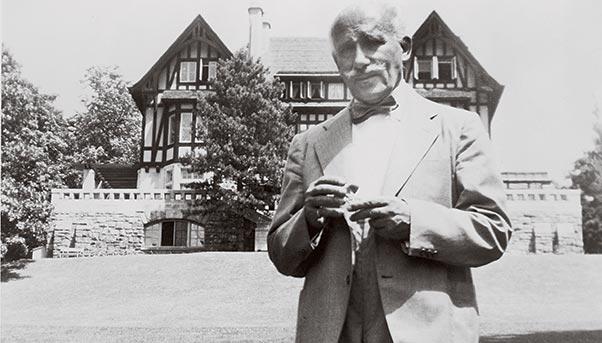Iam an old artist who had been among the first to denounce Fascism to the world. I feel and believe that I can act as interpreter of the soul of the Italian people--these people whose voice has been choked for more than 20 years, but, thanks to God, just now is shouting for peace and liberty in the streets and squares of Italy, defying everything, even martial law.» The year was 1943 and the world was in the throes of a terrible war. In an open letter published in “Life” magazine, Arturo Toscanini, the Italian orchestra conductor of international fame, called on the United States to help his home land. He had abandoned Italy years before as a result of the rise of fascism there, and went to in New York.
Despite his commitment to oppose fascism at every turn of his musical career, Toscanini had briefly supported it during its early stages in Italy because of its socialist leanings. He ran as a candidate for the party in Milan in the 1919 elections but did not win. His favorable view of fascism was destined to reverse itself as the movement degenerated into authoritarianism under Mussolini, whom he would oppose throughout the 1920s.
Toscanini’s decision to leave Italy was precipitated by an incident that occurred in Bologna. After refusing to perform the royal anthem and the official fascist party hymn - “Giovinezza” - before a concert, he was physically attacked in what was to be known as the “lo schiaffo” (the slap, in Italian). He vigorously protested in a letter to Mussolini, closing for good his rapport with the regime. He would swear never to conduct a concert in fascist Italy again and moved to the United States. And so began his fight against fascism. He ended his rapport with Hitler’s Nazi Germany, rejecting every invite to perform there. He abandoned the Wagner festival in Bayreuth and said goodbye to the much-loved Salzburg festival after Austria joined the Third Reich. Instead, he conducted an inaugural concert by a Palestine orchestra formed by Jewish musicians who had fled Nazism in central Europe.
He founded of a festival in Lucerne, Switzerland, where he performed the gala concert in 1938. Even there, he recruited musicians who had been forced to leave their respective orchestras because of Nazism in Europe.

Toscanini in front of his home in Riverdale, New York.
Private collection.
Toscanini’s commitment to oppose fascism and his work towards a democratic society inspired artists and intellectuals. In his open letter entitled “To the People of America” in “Life” magazine in 1943, he spoke of how he still had faith in the Italian people, saying how they «were forced into the role of ‘enemy’ by a vicious and wicked man, Mussolini, who betrayed (them) for more than 20 years».
At the end of the war, Toscanini returned to Italy and his beloved Teatro alla Scala, which had been renovated after the damages caused by the bombardment of Milan. On May 11, 1946, he led what would later be known as the “Concerto della Liberazione” (Concert of Liberation, in Italian).
Weeks later, in a referendum in which Italians were asked to decide on whether their country ought to remain a monarchy or become a republic, Toscanini voted for the latter.

